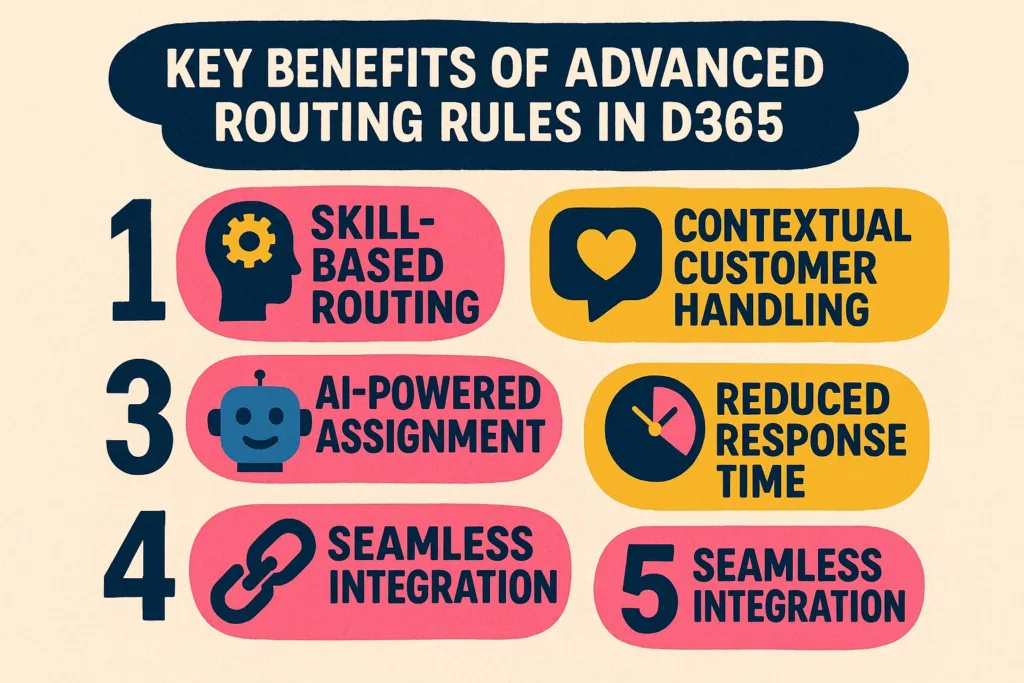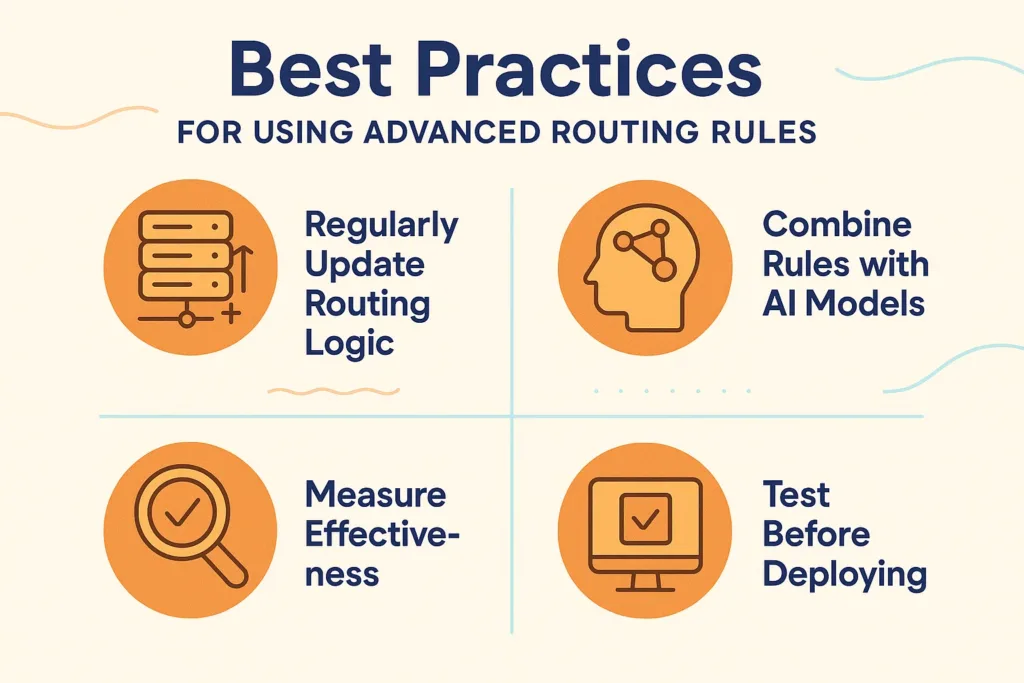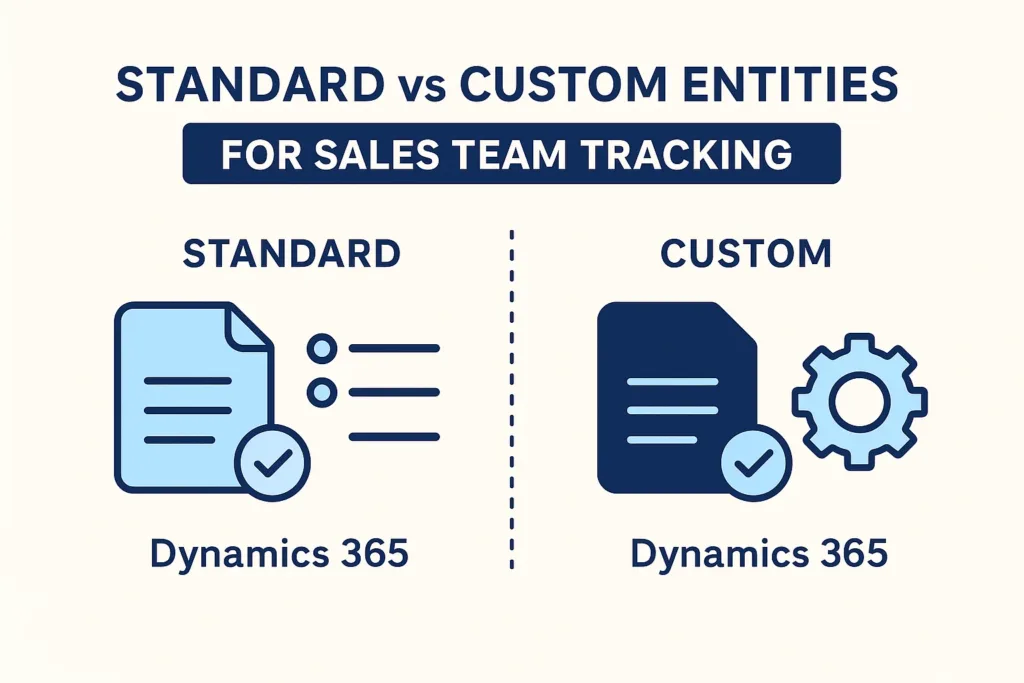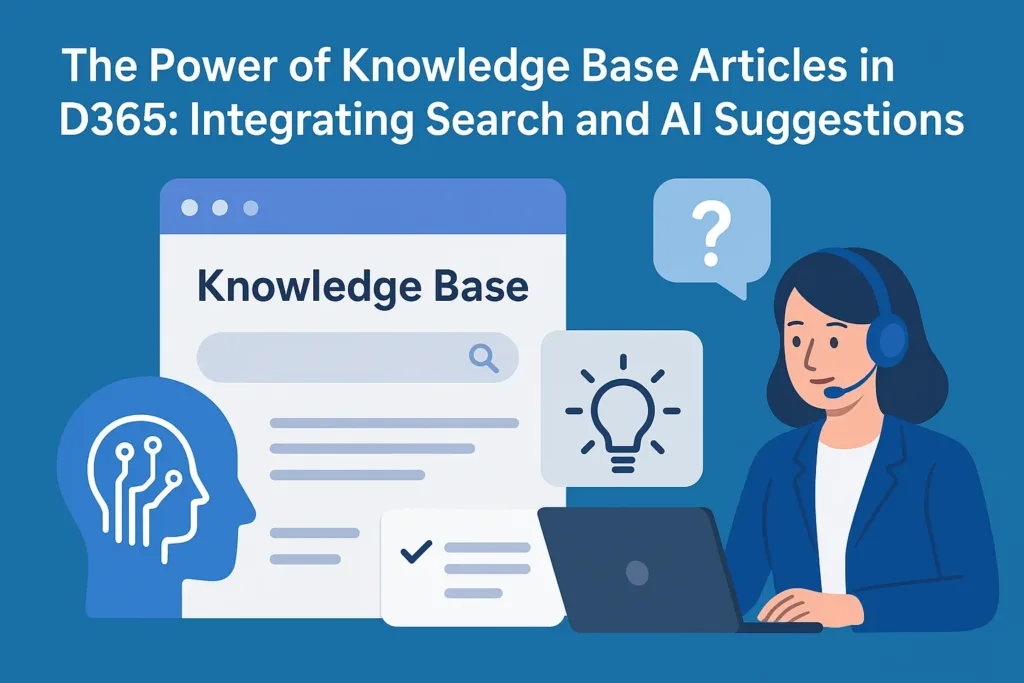Table of Content
- Introduction
- What Are Routing Rules in Dynamics 365 Customer Service?
- Why Move Beyond Simple Queues?
- Key Benefits of Advanced Routing Rules in D365
- Implementing Advanced Routing Rules: Step-by-Step Overview
- Best Practices for Using Advanced Routing Rules
- Common Use Cases
- Going Beyond Routing: Intelligent Customer Engagement
- How Sky Soft Connection Can Help
- Conclusion
- FAQ’s
Introduction
In today’s fast-paced business environment, customer service efficiency is no longer optional—it’s essential. With customers expecting instant and personalized responses, simply placing cases in static queues is not enough. That’s where Advanced Routing Rules in Dynamics 365 Customer Service (D365) step in, taking case management to an entirely new level.
In this blog, we’ll explore how advanced routing mechanisms work, their benefits over traditional queues, and how organizations can use them to enhance customer satisfaction and agent productivity.
What Are Routing Rules in Dynamics 365 Customer Service?
Routing rules in D365 Customer Service determine how incoming cases are automatically assigned to queues or agents based on defined conditions.
Traditionally, these rules route cases into queues like “High Priority,” “Billing Issues,” or “Technical Support.” However, as service operations grow complex, basic queues struggle to handle:
- Multiple priority levels
- Complex customer segments
- Varying agent expertise
That’s why Microsoft introduced Advanced Routing Rules—offering intelligence, flexibility, and automation.
Why Move Beyond Simple Queues?
While queues work for small-scale operations, advanced routing provides dynamic allocation that enhances speed, accuracy, and scalability.
Let’s compare both approaches below:
| Feature | Simple Queues | Advanced Routing Rules |
|---|---|---|
| Routing Logic | Static conditions | Dynamic, AI or skill-based |
| Scalability | Limited | High – adapts to workload changes |
| Customer Experience | Generic | Personalized and faster |
| Agent Utilization | Uneven | Balanced and optimized |
| Automation Level | Low | High (via Power Automate or Omnichannel features) |
Key Benefits of Advanced Routing Rules in D365

1. Skill-Based Routing
Match cases to agents based on their expertise, language, or certification level. This ensures that every case reaches the most capable person right away.
2. Contextual Customer Handling
Leverage data from previous interactions, sentiment analysis, or CRM history to route cases intelligently. For instance, premium customers can be automatically prioritized.
3. AI-Powered Assignment
Using Dynamics 365 Omnichannel for Customer Service, cases can be routed using AI models that assess agent availability, skill level, and past performance.
4. Reduced Response Time
Automated routing eliminates delays in manual case assignment, improving First Response Time (FRT) and Customer Satisfaction Score (CSAT).
5. Seamless Integration
Integrate routing with Power Automate, Power BI, or Dynamics 365 CRM to track KPIs and fine-tune workflows continuously.
Implementing Advanced Routing Rules: Step-by-Step Overview
Here’s how you can transition from simple queues to intelligent routing:
- Define Case Criteria: Identify fields such as product type, customer tier, or location that influence routing.
- Set Up Routing Rules: Use Routing Rule Sets to specify conditions and actions.
- Leverage Skill-Based Profiles: Assign agent capabilities within Omnichannel Administration.
- Use Workstreams: Create dedicated workstreams to handle similar types of cases efficiently.
- Integrate with Automation Tools: Use Power Automate to trigger routing updates, notifications, or escalation workflows.
Best Practices for Using Advanced Routing Rules

- ✅ Regularly Update Routing Logic: Keep rules aligned with new product lines, teams, or service-level goals.
- 🔄 Combine Rules with AI Models: Use AI to predict workload spikes and pre-adjust routing.
- 📊 Measure Effectiveness: Monitor metrics such as response time, resolution rate, and agent utilization.
- 💡 Test Before Deploying: Always validate new rules in a sandbox to ensure accuracy.
Common Use Cases
| Scenario | Example of Routing Logic |
|---|---|
| Language Preference | Route French-speaking customers to French support agents |
| Customer Tier | VIP customers routed to premium service queue |
| Product Type | Hardware issues routed to technical experts |
| Priority Handling | Urgent tickets automatically escalated to supervisors |
Going Beyond Routing: Intelligent Customer Engagement
Advanced Routing isn’t just about assigning tickets—it’s about improving the entire support journey. When integrated with Omnichannel, agents can handle cases from multiple channels like chat, email, and social media—all from one interface.
Moreover, Power BI dashboards allow managers to visualize case distribution, helping teams forecast demand and optimize resource allocation.
How Sky Soft Connection Can Help
At Sky Soft Connection, we specialize in implementing and customizing Dynamics 365 Customer Service environments for organizations worldwide.
Our team helps you:
- Build advanced routing workflows tailored to your support model
- Integrate AI-driven case management
- Configure Omnichannel capabilities for real-time engagement
- Connect your D365 instance with Power Platform tools (Power BI, Power Automate, Power Apps)
With over 40,000 hours of successful delivery and a Top Rated Plus status on Upwork, Sky Soft Connection ensures your CRM works smarter—not harder.
Conclusion
As customer expectations evolve, Advanced Routing Rules in D365 Customer Service are no longer a luxury—they’re a necessity. By moving beyond simple queues, organizations can ensure faster resolutions, improved agent efficiency, and exceptional customer experiences.
With expert implementation by Sky Soft Connection, you can transform your customer service operations into a strategic advantage.
Read more : standard vs custom entities in dynamics 365
FAQ’s
Advanced Routing Rules automatically assign cases to the right agents based on skills, priority, or customer type—going beyond basic queue-based routing to improve speed and accuracy
They reduce manual assignments, route cases intelligently, and ensure customers are connected with the most suitable agent, leading to faster resolutions and higher satisfaction.
Yes, Advanced Routing Rules work seamlessly with Power Automate, Power BI, and Omnichannel for Customer Service, enabling end-to-end automation and data-driven insights.
 is a software solution company that was established in 2016. Our quality services begin with experience and end with dedication. Our directors have more than 15 years of IT experience to handle various projects successfully. Our dedicated teams are available to help our clients streamline their business processes, enhance their customer support, automate their day-to-day tasks, and provide software solutions tailored to their specific needs. We are experts in Dynamics 365 and Power Platform services, whether you need Dynamics 365 implementation, customization, integration, data migration, training, or ongoing support.
is a software solution company that was established in 2016. Our quality services begin with experience and end with dedication. Our directors have more than 15 years of IT experience to handle various projects successfully. Our dedicated teams are available to help our clients streamline their business processes, enhance their customer support, automate their day-to-day tasks, and provide software solutions tailored to their specific needs. We are experts in Dynamics 365 and Power Platform services, whether you need Dynamics 365 implementation, customization, integration, data migration, training, or ongoing support.


